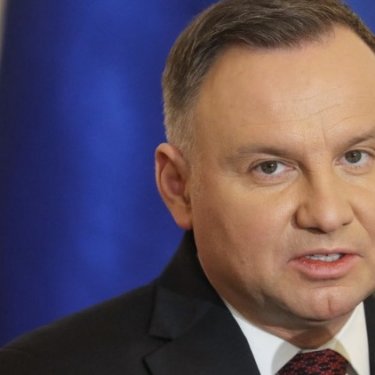RSF declares “press freedom state of emergency” in Poland

Reporters Without Borders (RSF) declared a “press freedom state of emergency” in Poland during a visit to Warsaw last week, condemning a broadcasting law amendment that threatens TVN, the country’s leading independent broadcast media group, and the arbitrary restrictions on press freedom that the government has imposed as part of state of emergency along the border with Belarus. Although the amendment, known as the “Lex TVN,” has just been rejected by Poland’s senate, it could still be adopted and TVN’s 24-hour news channel, TVN24, could still end up losing its broadcasting licence.
As well as declaring a “press freedom state of emergency,” the RSF delegation that visited Warsaw on 9 and 10 September urged the lower house (the Sejm) and President Andrzej Duda to reject this amendment. It would force the US media conglomerate Discovery to shed its majority share in TVN so that TVN would not be stripped of the right to broadcast.
Duda has suggested vetoing "the current version" of the amendment to the law on broadcasting, an option he has not yet confirmed.
“PiS is pushing an amendment to the broadcast law whose objective is clear: first weaken and then take control of the biggest source of independent news in this major EU country,” said Pavol Szalai, the head of RSF’s European Union and Balkans desk. “Attacking TVN means attacking press freedom in Europe,” Szalai added, speaking at a demonstration organised outside the Polish senate on 9 September by a civil society organisation known as “Women Strike.”
Szalai advocated for renewal of TVN24’s licence and explained RSF’s opposition to the Lex TVN during a meeting the next day with Witold Kołodziejski, the head of KRRiT, the agency that supervises Poland’s broadcast media.
The opposition-dominated senate rejected the Lex TVN on 9 September, but the lower house, which is controlled by the ruling PiS party, has the power to override the senate’s objection and could approve the amendment as early as this week. Or it could decide maintain the suspense about its final decision in order to prolong the pressure on TVN.
The KRRiT has so far refrained from renewing TVN24’s licence although it expires on 26 September and TVN requested the renewal a year ago. The KRRiT’s members, most of whom are appointed by the ruling coalition’s parties, have publicly given several possible reasons for refusing to renew, but the legal grounds for these reasons are unclear. TVN24 was meanwhile forced to make an urgent request to the Netherlands for a licence allowing it to broadcast its programmes within the European Union.
The offensive against the TVN group is the latest stage in the “repolonisation” of private sector media that the government has pursued this year, in which it has used the declared goal of combatting foreign meddling in the public debate as a cover for its efforts to get Polish media outlets to adopt editorial policies that give it more support.
TVN could suffer the same fate as Polska Press, the country’s biggest network of regional media outlets, which has not hesitated to fire critical journalists since its acquisition by the state-controlled oil company PKN Orlen. The public service media’s transformation into government propaganda outlets has meanwhile been completed by a new series of arbitrary dismissals, as RSF reported in February 2020.
The latest evidence of the alarming deterioration in press freedom in Poland is a ban on journalists reporting near the border with Belarus, even to cover stories that clearly serve the public interest. The ban was imposed under a state of emergency in the border region declared by the president on 2 September and approved by the Sejm four days later on the grounds of an influx of migrants and Russia’s plans for major military exercises in the region.
Onet.pl news website reporter Bartlomiej Bublewicz and his cameraman managed to enter the border area last week but learned on their return that are to be prosecuted for violating the state of emergency and filming near the border. After calling on the authorities to drop the charges against the reporters, RSF met Bublewicz in Warsaw and expressed him support.
Since the PiS became the ruling party again in 2015, Poland has fallen 46 places in RSF's World Press Freedom Index and is now ranked 64th out of 180 countries.



